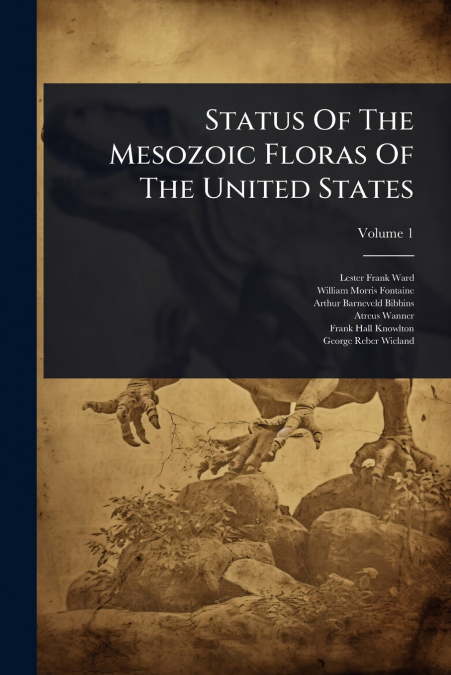
Lester Frank Ward / Arthur Barneveld Bibbins / William Morris Fontaine
'Status Of The Mesozoic Floras Of The United States, Volume 1' offers a detailed exploration of plant life during the Mesozoic Era in various regions of the United States. This comprehensive work, compiled by Lester Frank Ward, William Morris Fontaine, Arthur Barneveld Bibbins, Atreus Wanner, Frank Hall Knowlton, and George Reber Wieland, synthesizes existing knowledge and presents new findings related to fossil plants from this pivotal period in Earth’s history.The book delves into the geological context, species identification, and evolutionary significance of Mesozoic plant assemblages. With contributions from multiple experts, it provides a multifaceted view of the flora, making it an invaluable resource for paleobotanists, geologists, and anyone interested in the deep history of plant life. This volume serves as a crucial reference for understanding the distribution and characteristics of Mesozoic plants in the United States, reflecting the state of scientific understanding at the time of its publication and offering insights that remain relevant to contemporary research.This work has been selected by scholars as being culturally important, and is part of the knowledge base of civilization as we know it. This work was reproduced from the original artifact, and remains as true to the original work as possible. Therefore, you will see the original copyright references, library stamps (as most of these works have been housed in our most important libraries around the world), and other notations in the work.This work is in the public domain in the United States of America, and possibly other nations. Within the United States, you may freely copy and distribute this work, as no entity (individual or corporate) has a copyright on the body of the work.As a reproduction of a historical artifact, this work may contain missing or blurred pages, poor pictures, errant marks, etc. Scholars believe, and we concur, that this work is important enough to be preserved, reproduced, and made generally available to the public. We appreciate your support of the preservation process, and thank you for being an important part of keeping this knowledge alive and relevant.